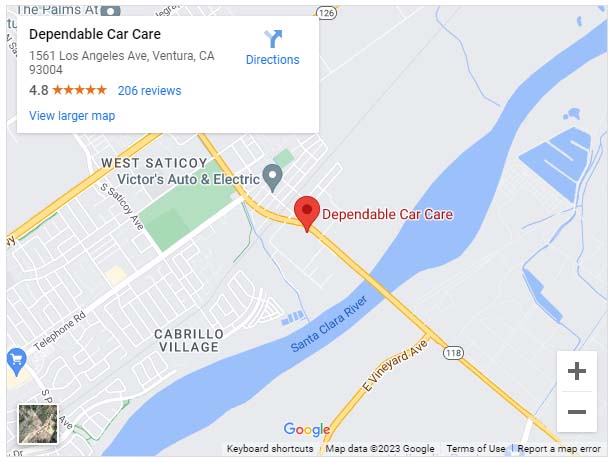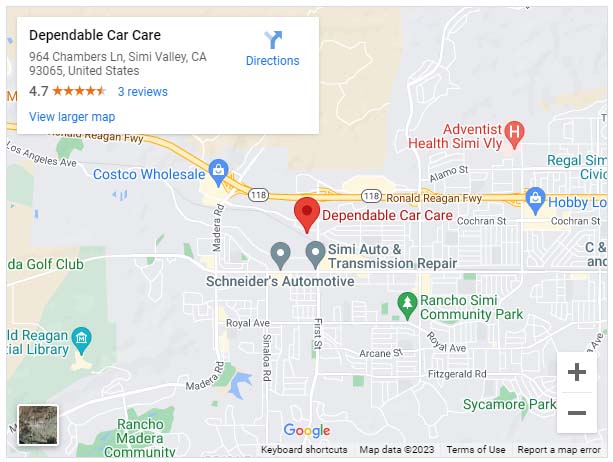Automotive Engine Rebuilders
Engine Replacement Near Me
A car’s engine is a sophisticated, continuously evolving machine that we in the auto repair business spend decades studying. If it’s acting up, it’s not an inherent design flaw. It’s a problem that requires attention. The tricky thing about an engine is that you must diagnose it first. That’s why the first thing most people start typing into searches is “engine rebuild shops near me” or “automotive engine rebuilders near me”.
The process of diagnosing a faulty engine is something of a lost art. It requires skill, experience, and a special knack for solving complicated puzzles. Often, a symptom will point in the wrong direction, and mechanics will keep throwing new parts at the issue.
At Dependable Car Care, we’ve been tracing engine symptoms down to their core problems for more than two decades. Throughout the years, we’ve built a deep understanding of engine mechanics and developed first-response procedures for routine and rare problems alike.
Our dependable treatments will have your engine up and running in a bit.
Ventura
(805) 659-2957
Call Us -
Text Us
Mon-Fri: 7:30 am - 5:00 pm
Simi Valley
(805) 581-9013
Call Us -
Text Us
Mon-Fri: 7:30 am - 5:00 pm
At Dependable Car Care, we offer comprehensive Engine services in Ventura County, keeping your car in pristine condition. Learn more about the specific types of Engine we offer below.
- Camshaft replace
- Camshaft seal
- Complete engine replace
- Crankshaft main bearing seal
- Cylinder head gasket
- Diagnose engine concern
- Diagnose engine noise
- Engine mount
- Engine oil cooler
- Engine oil cooler line
- Engine oil pan gasket
- Engine oil pressure testing
- Engine oil pump
- Engine rebuild
- Engine torque strut
- Intake manifold
- Intake manifold gasket
- Lifters replace
- Long block replace
- Oil pressure switch/sensor
- Short block replace
- Valve job
- Valves adjust

AUTOPASS the Stress Free Option!
The AutoPass Tire & Service Card is the one tool that will help you meet all your automotive service needs.

Diagnose engine concern
Many customers admit to trying to identify an engine concern at home before they eventually give up and come in for diagnostics. That’s because, with an engine, the issue is never what it seems. These problems are notoriously misleading and frustratingly elusive.
While you can probably identify a burned ignition wire or ruptured radiator hose, most engine issues require professional diagnostics. All our mechanics are trained to inspect an engine from all angles and to stop and think before they make a costly and unnecessary move.
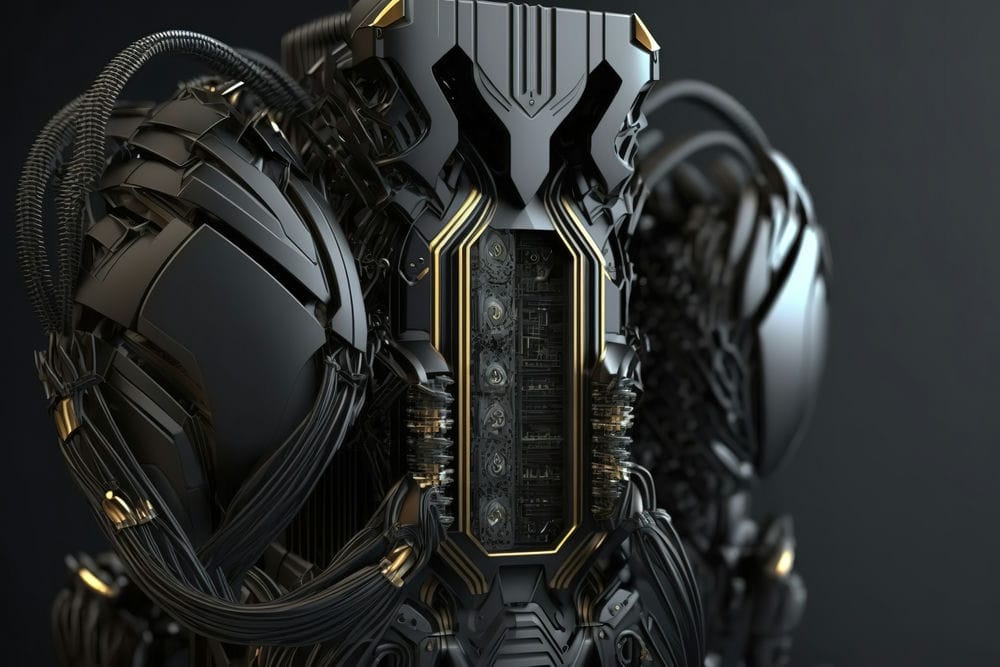
Diagnose engine noise
Many problems with the engine begin with strange noises coming from under the hood. Many issues can cause them, some more complicated than others. When you hear a weird noise like this, the rule of thumb is to leave the guesswork to your mechanic.
Our team at Dependable Car Care can diagnose engine noise of all kinds – we’ve diagnosed enough of them over the years to know that the sooner you have this symptom checked, the less work the engine will require because the root issue will have less time to damage other parts.
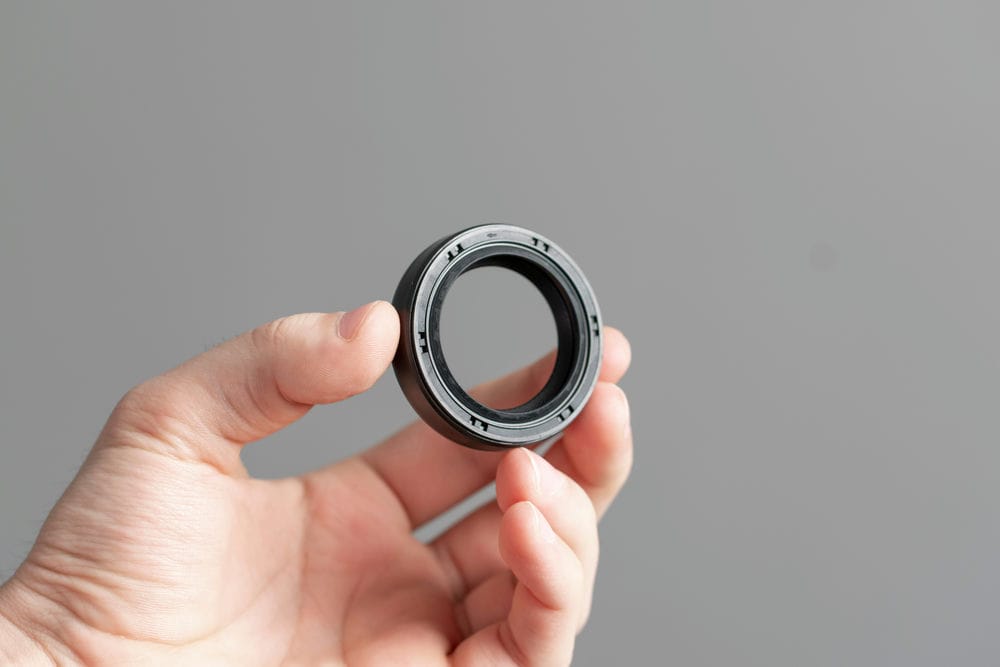
Camshaft replace
Maybe you know that the camshaft is a part of your car’s engine responsible for opening and closing the valves. What type of configuration do you have? Is it an overhead cam engine or an overhead valve engine? Is the camshaft in perfect timing with the crankshaft?
Most car owners can’t answer these questions and don’t need to. It’s a mechanic’s job to know all this and explain it to you if you want to learn more about your vehicle. In any case, if you’re dealing with a camshaft failure, that’s usually a sign of a bigger engine issue.
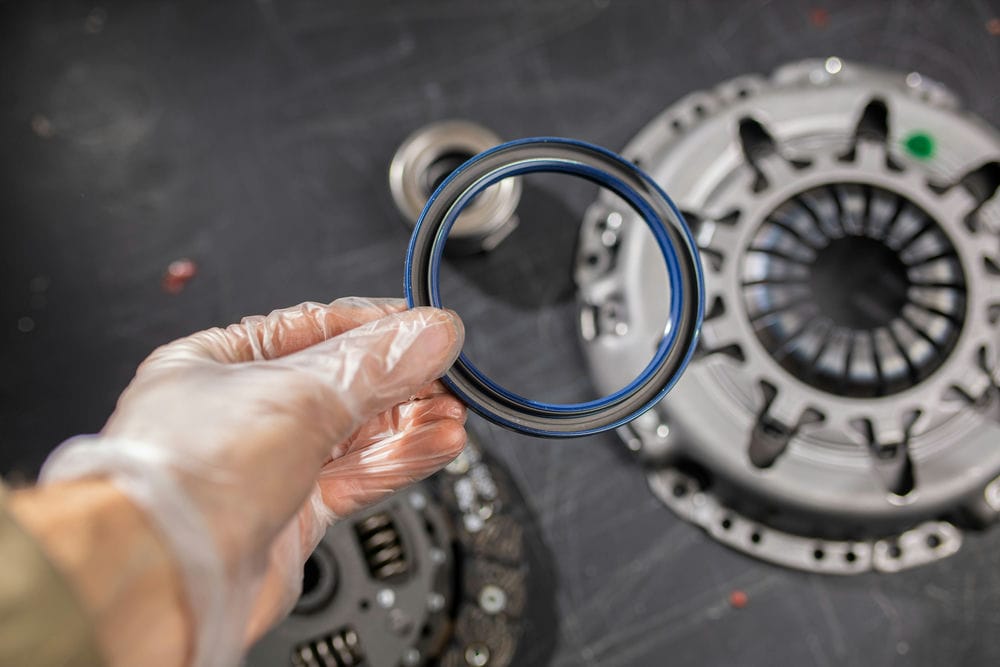
Camshaft seal
If there is oil leaking behind the timing cover or you can see the smoke coming out of the exhaust, this might be due to a camshaft seal failure. The camshaft seal is a small rubber part that prevents oil leaks in the engine. Even the more durable seals can’t withstand time.
While replacing a camshaft seal is a minor job for a professional, not noticing or ignoring an oil leak can have expensive consequences. For starters, the oil can contaminate the timing belt and cause a domino effect that can be prevented if you stop by our mechanic soon.
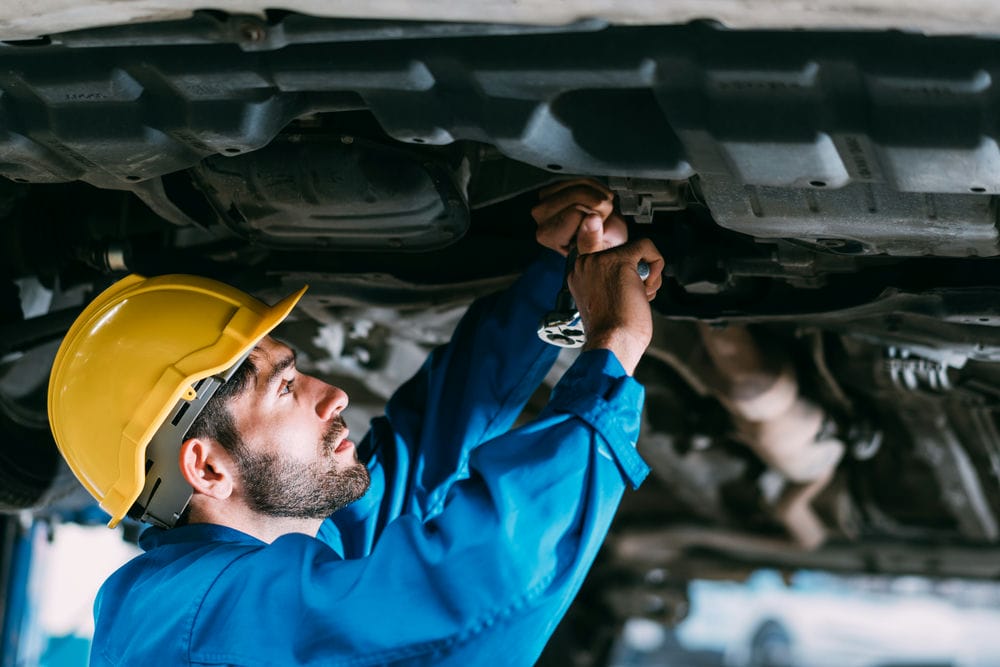
Lifters replace
A lifter is a cylinder between the camshaft and the valves in the engine. There are two types of engine lifters – hydraulic and mechanical. Neither is immune to mechanical failures, usually followed by knocking noises and rough running, especially when accelerating.
If you notice any of these symptoms coupled with difficulty accelerating, vibrations, or even warning lights, it’s a good idea to bring your car in as soon as possible. Otherwise, a broken lifter can lead to costly damages like blown head gaskets or cracked cylinder heads.
Reach out to us today to schedule an appointment
Ventura
(805) 659-2957
Call Us -
Text Us
Mon-Fri: 7:30 am - 5:00 pm
Simi Valley
(805) 581-9013
Call Us -
Text Us
Mon-Fri: 7:30 am - 5:00 pm
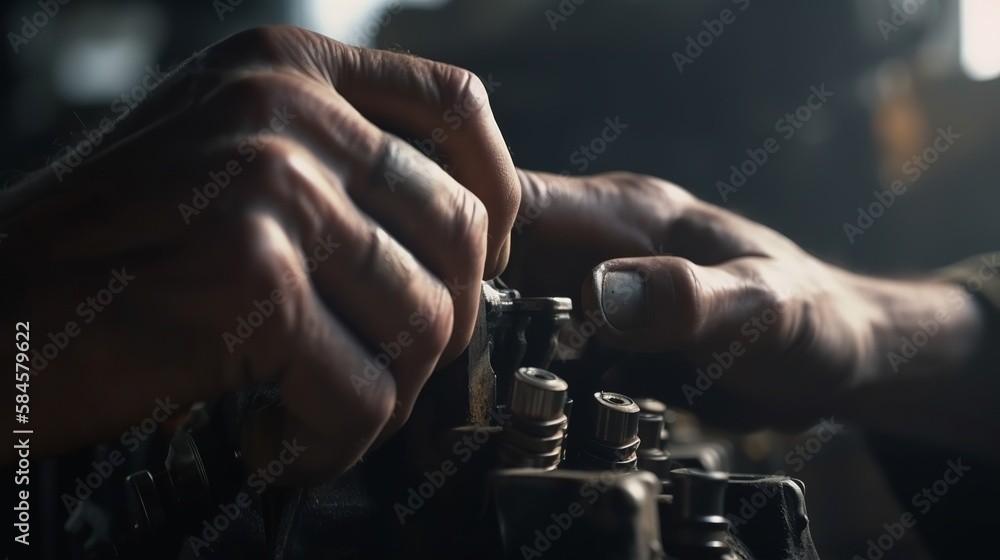
Valves adjust
Another important part of your car’s engine system is the intake and exhaust valves. While intake valves let the air-fuel mixture for the cylinders, exhaust valves allow the produced gas to escape the vehicle. Occasionally, valves need to be adjusted for optimum performance.
Unless you start experiencing cluttering noises, rough idling, or excess oil consumption – in which case you should take your car to the mechanic immediately – engine valves should be inspected and adjusted every 60,000 miles to avoid further damage and major engine work.
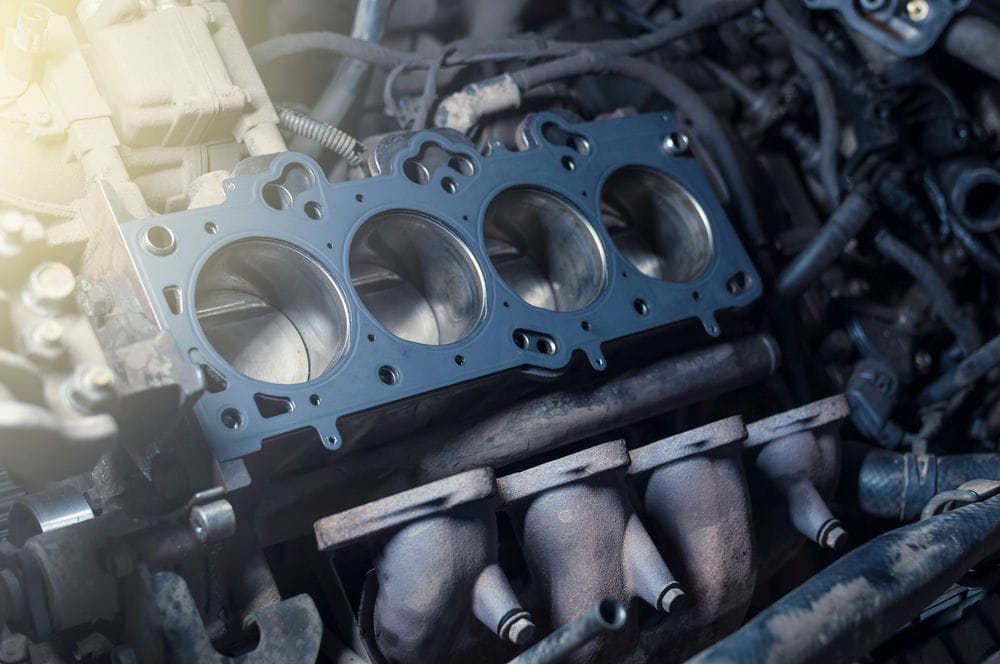
Cylinder head gasket
Maybe you don’t know about it, but a cylinder head gasket is essential for the proper functioning of your vehicle’s engine. It serves not one but two key functions – it keeps the oil and coolant from leaking into the engine, and it helps distribute the force generated by the cylinders.
Even though they are made to endure high temperatures and pressures, cylinder head gaskets are not indestructible. If it breaks, the oil and coolant can contaminate the engine and cause damage that can’t be repaired – unless we act fast and replace the gasket before it leaks.
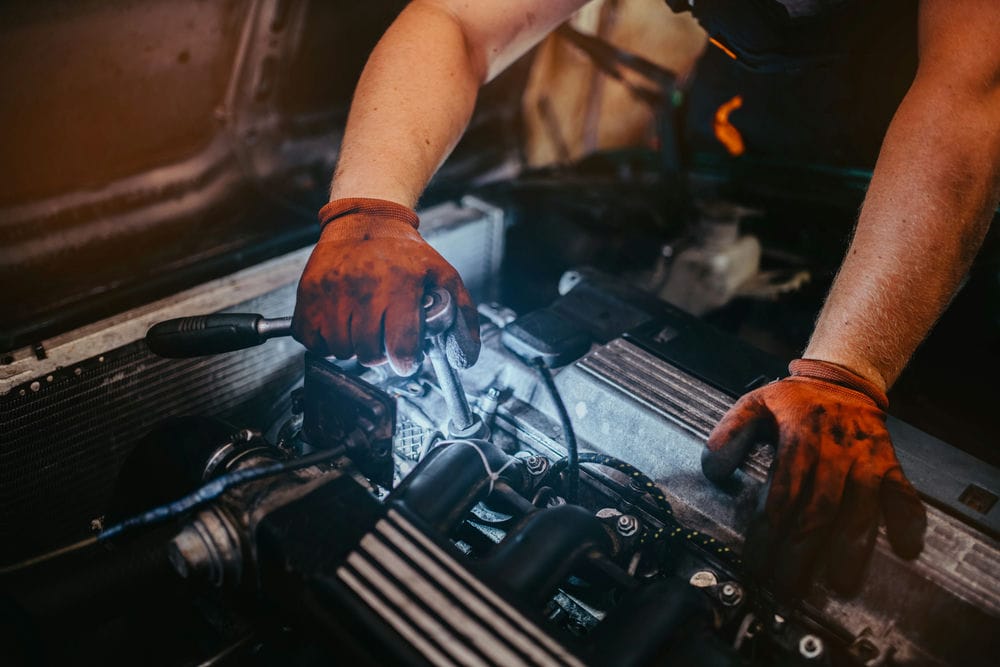
Valve job
Valves can be bent, broken, or burnt, causing popping noises, blue exhaust smoke, and even engine power loss. Because it’s one of the engine problems that are most difficult to identify, this type of failure requires some detective work before fixing or replacing the valve.
You can’t repair a valve until you know what caused the failure in the first place. To get there, our skilled mechanics clean and disassemble the valve first and then thoroughly inspect it for suspected problems. The valve job itself is fairly simple, with an accurate diagnosis.
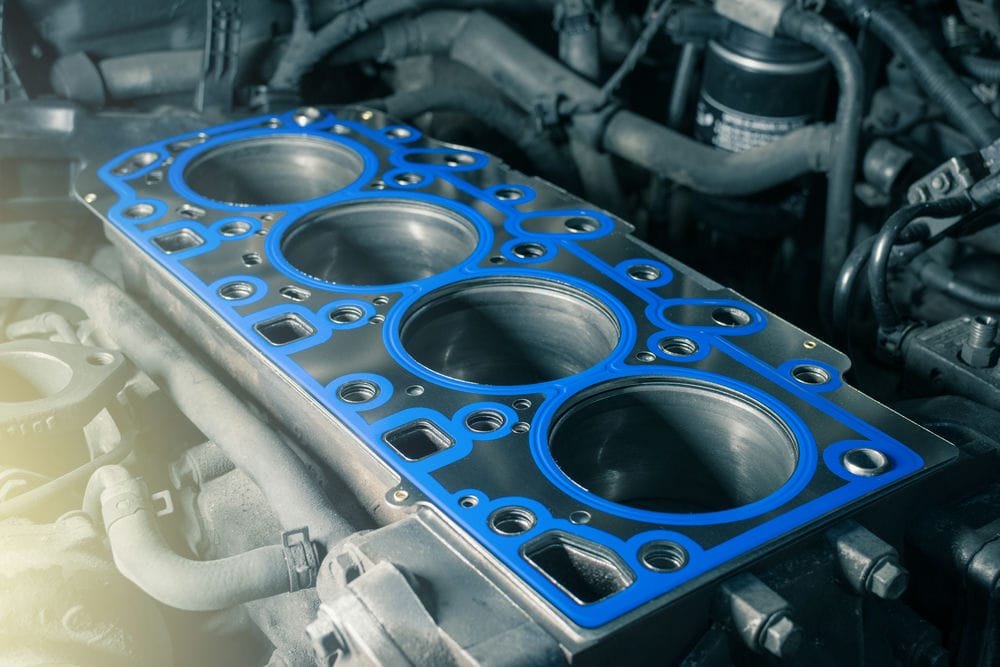
Short block replace
If your car isn’t running well – or at all – major engine work is likely inevitable. Sometimes, replacing a car’s engine makes more sense financially and performance-wise than trying to patch it together, and we can help you make some important decisions.
Choosing between the two types of motor assemblies can be tough. Car owners who want customization options usually go for a short block replacement. In this case, our mechanics can give expert advice on building up your engine with pistons, crankshaft, and other parts.
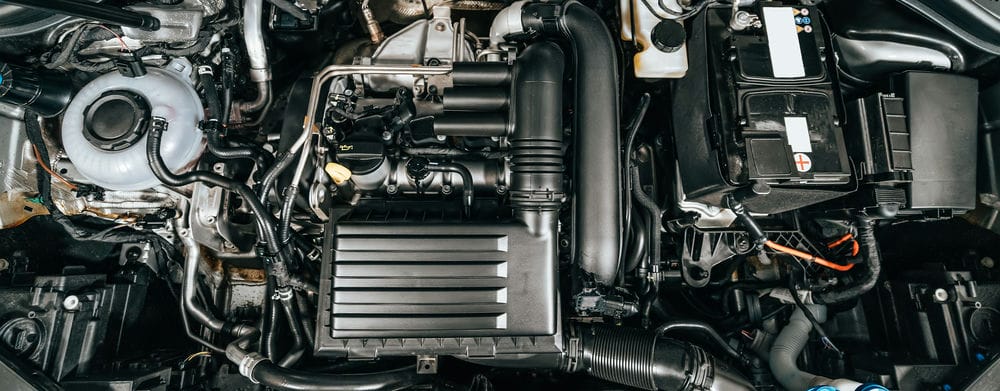
Long block replace
When your vehicle’s engine is beyond repair, an experienced mechanic will recommend a replacement job. It’s always upsetting when this happens, but it’s also an opportunity to invest in your car and boost its economy and performance. We’ll be glad to help you with that.
For starters, you’ll have to decide whether you want a short-block or long-block engine. If you prefer a straight-up replacement, you’ll probably want a complete long-block engine. Our mechanics will walk you through the process of choosing the best one for your vehicle.
Reach out to us today to schedule an appointment
Ventura
(805) 659-2957
Call Us -
Text Us
Mon-Fri: 7:30 am - 5:00 pm
Simi Valley
(805) 581-9013
Call Us -
Text Us
Mon-Fri: 7:30 am - 5:00 pm
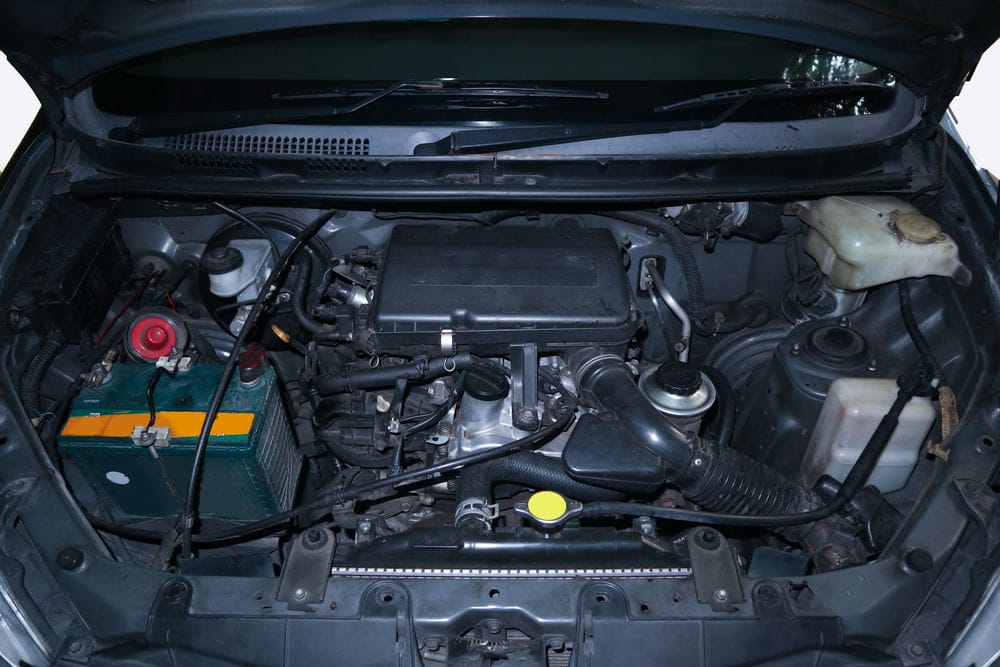
Complete engine replace
Whether you’re a car enthusiast or not, doing a complete engine replacement can be exciting, whether it be short block engine replacement or long block. You can finally make your vehicle faster, better, and safer, but this involves research and bold decision-making. If you think our expertise and experience could help, call us up.
You’ll have to choose the type of motor assembly – short block or long block engine replacement – and try to get the best value for your money. Sometimes, going for a used or remanufactured engine makes more sense. If you’ll let us, our mechanics will be with you every step of the way.

Engine rebuild
Sometimes, you don’t need any skill or experience to know your engine is dead. However, you do need a professional opinion when deciding what comes next. Is it time to buy a new car, or is an engine rebuild the answer? We can make that simple for you.
Situations like this show why holistic engine diagnosis is so important and why people end up searching for “engine rebuilders near me”. Upon inspecting your entire car, not only the engine, we’ll be able to tell you how well the car will run after an engine rebuild and give you a total projected cost. That way, you can make the best decision.
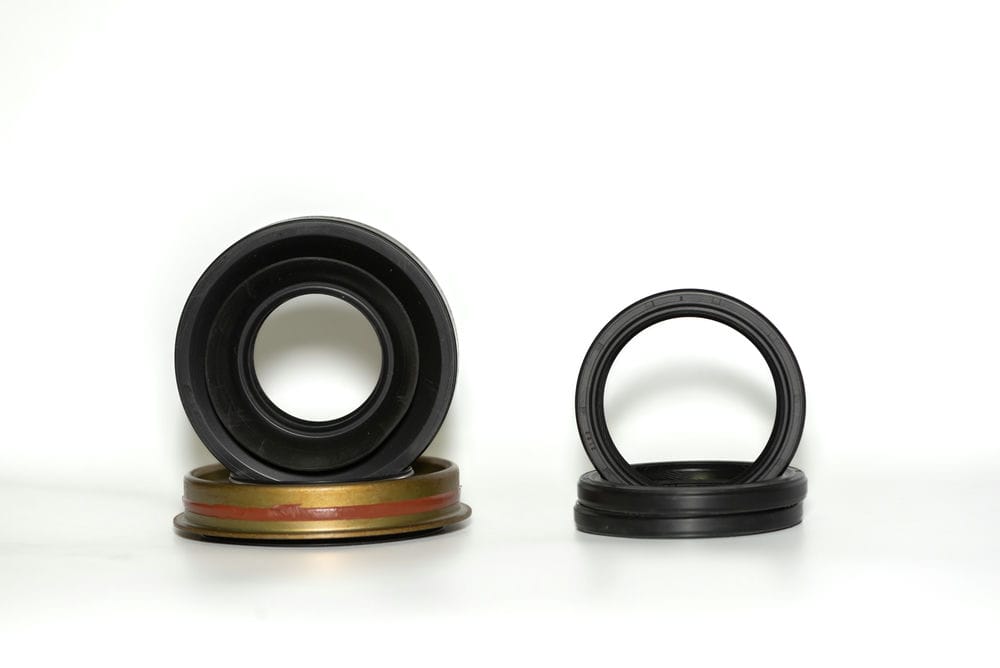
Crankshaft main bearing seal
The crankshaft main bearing seal is a small part of your car’s engine that plays a big role in maintaining optimum performance. Its job is to keep the engine oil sealed so that it can’t escape and contaminate other components. It’s made of rubber and is subject to wear and tear.
We see many older vehicles with high mileage for this particular problem. If the crankshaft main bearing seal breaks, it can be easily replaced – assuming you can access it. However, if that’s not done properly or in time, the oil will eventually leak and wreak havoc on the engine.
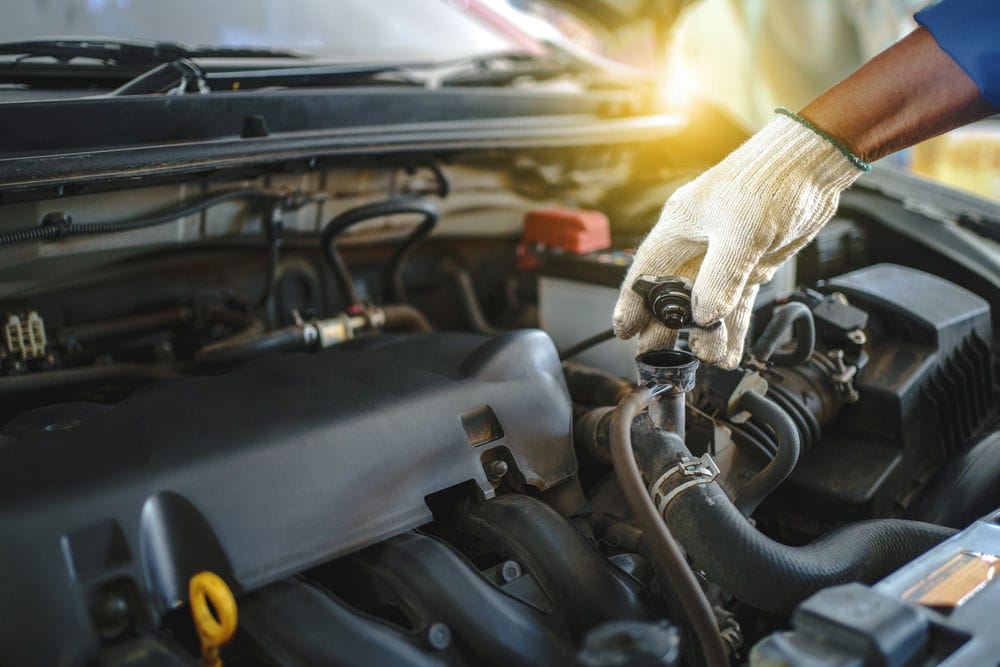
Engine oil cooler
Your car’s oil cooler serves a twofold purpose – it lubricates different parts of the engine and cools the engine oil. In vehicles where oil and oil filters aren’t changed as often as recommended, the oil cooler often fails at about 50,000 miles due to accumulated oil deposits.
Common symptoms of a cooling system failure include engine misfiring, black exhaust, and, ultimately, power loss. An untreated problem with your oil cooler can lead to overheating and leaks, so don’t delay stopping by for long if you want to avoid irreparable engine damage.
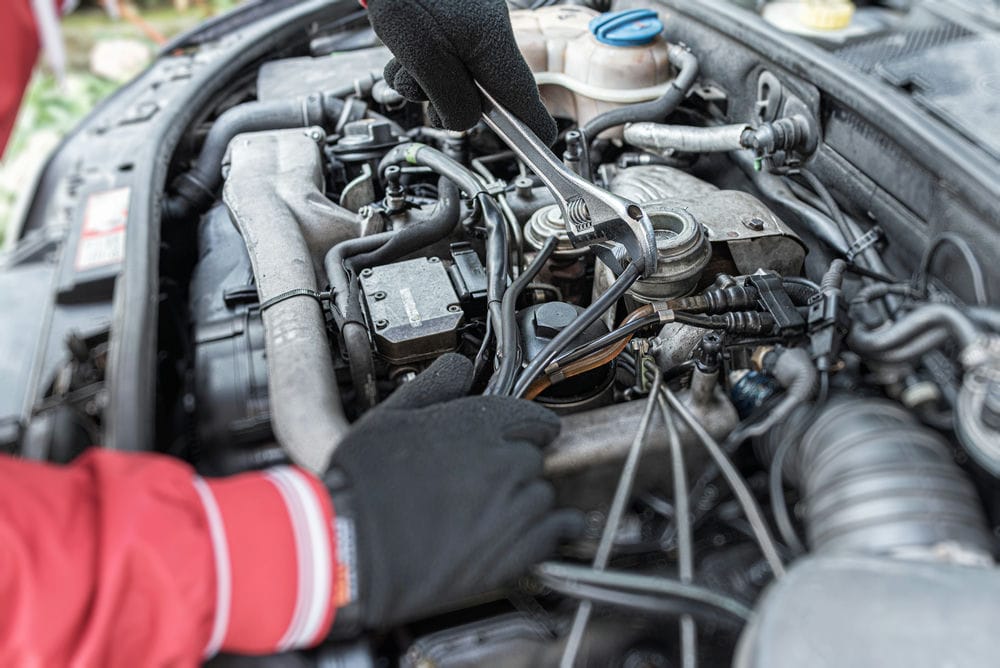
Engine oil cooler line
We cannot overstress enough the importance of a properly functioning air cooling system in your auto engine. While skipping oil checks will inevitably result in an air cooler failure, this is not the only reason why engine oil coolers eventually break down and must be replaced.
Oil cooler lines, made of rubber and metal, are another common reason for this. They are the least durable part of the oil cooling system, and they often need to be replaced before they compromise the entire engine. If you see an oil puddle under your car, give us a call.
Reach out to us today to schedule an appointment
Ventura
(805) 659-2957
Call Us -
Text Us
Mon-Fri: 7:30 am - 5:00 pm
Simi Valley
(805) 581-9013
Call Us -
Text Us
Mon-Fri: 7:30 am - 5:00 pm
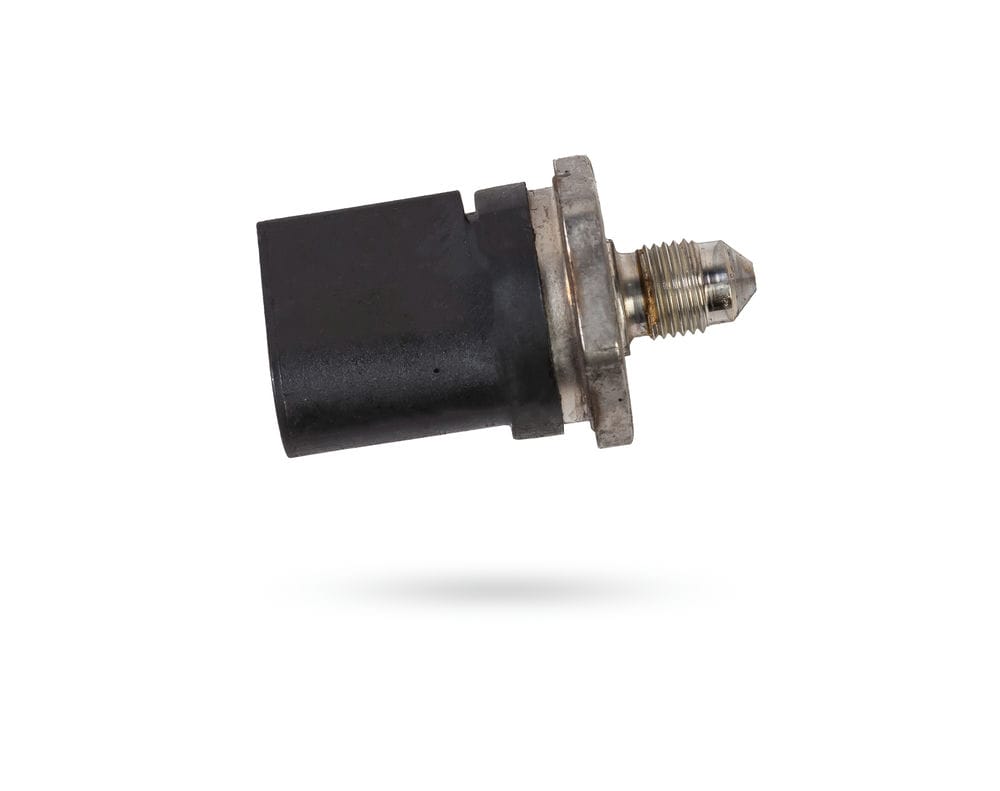
Oil pressure switch/sensor
Every car engine has an oil switch or sensor that monitors the oil in the lubrication system. When it fails, it can be for several different reasons. More often than not, an oil pressure switch failure is only a symptom of an internal engine issue requiring deep diagnostics.
Sometimes, the oil pressure switch starts leaking oil. Other times, it fails to read the pressure correctly, triggering the low-pressure warning lights for no apparent reason. In either case, our mechanic will perform tests to determine whether it should be resealed or replaced.
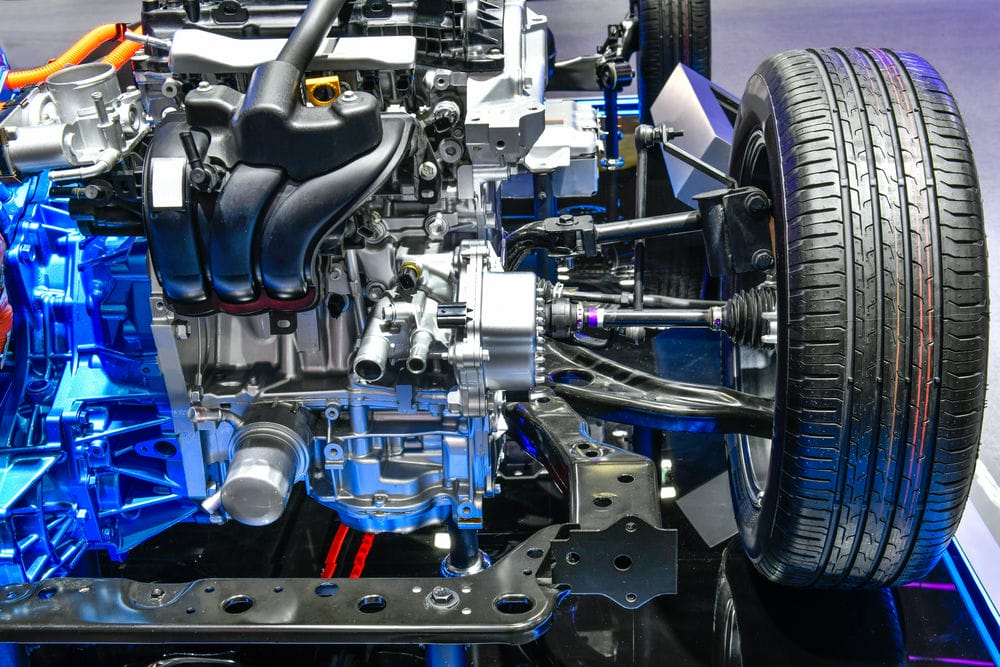
Engine mount
Engine mounts are the most important support components in your vehicle. In addition to keeping the engine in place, they provide isolation from other parts in the engine bay and stop the motor’s vibration from being transmitted to the chassis. They are small but significant.
Unusual vibration is, therefore, the most reliable sign that a car needs an engine mount replacement. Some other symptoms of wear and tear include clunking and irregular movement when accelerating, which usually start showing after 5 to 10 years of dependable support.
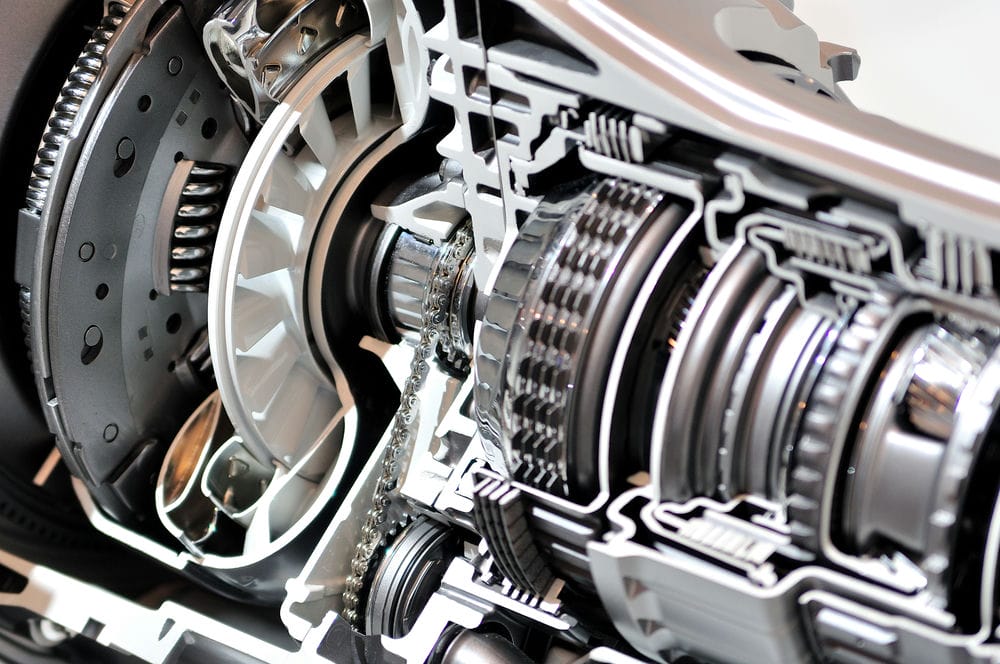
Engine torque strut
The torque strut mount is another critical part that provides support to a vehicle’s engine. If you start to feel excessive vibration while driving, that is almost an infallible sign of the engine torque strut failure. You should get your vehicle checked and fixed as soon as possible.
While a broken torque strut won’t leave you stranded on the road needing a tow, driving without proper engine support can cause secondary damage to other engine components. Wire harnesses, hoses, gaskets, and sensors are the most likely to suffer from a bad torque strut.
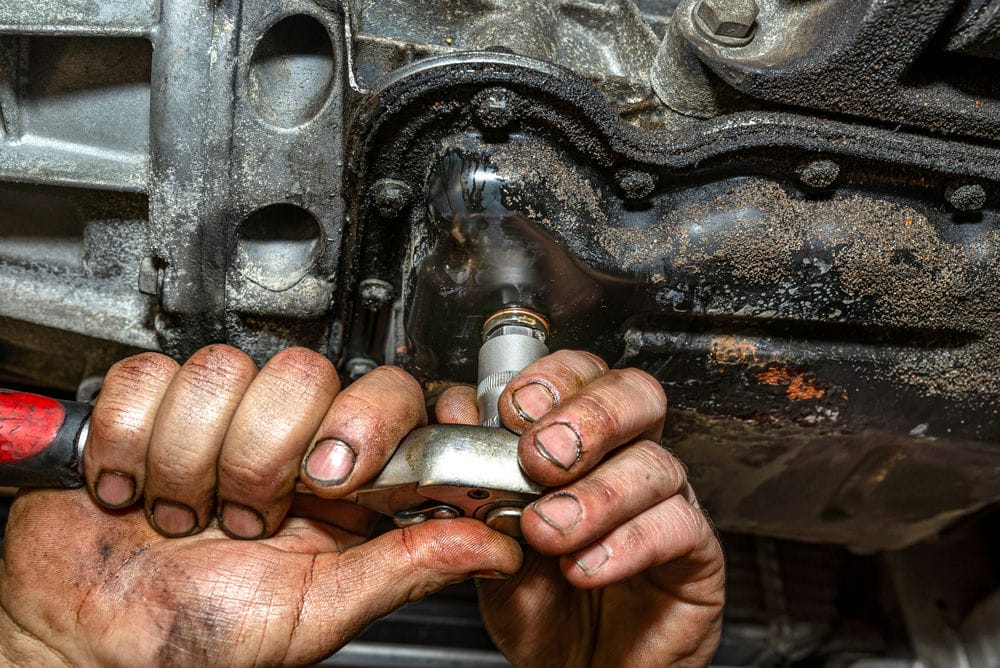
Engine oil pan gasket
Your car’s oil pan sits at the bottom section of the motor block, where it collects oil as it flows through the engine. The oil pan gasket is an additional part that seals the pan, thus keeping excess oil away from the rest of the components. Both the pan and the gasket can fail.
When that happens, the oil levels will drop, the engine can overheat, and sometimes black smoke can be noticed coming out from the exhaust pipe. Oil leaks are notoriously difficult to trace, but our mechanics can tell you if your oil pan gasket has been damaged.
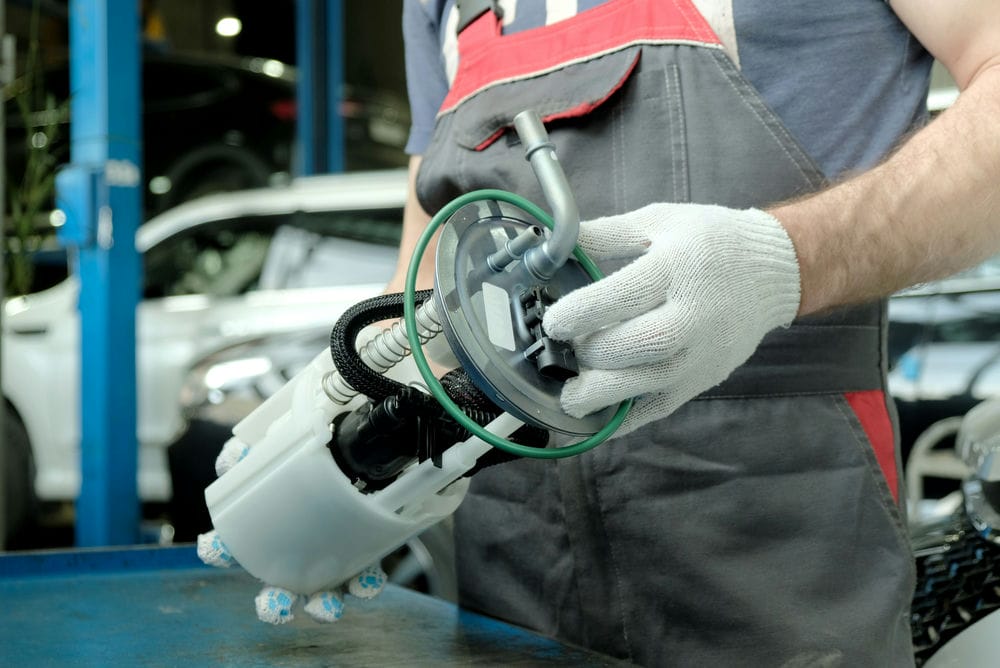
Engine oil pump
What makes engine diagnostics and repair so challenging is that nearly all issues, big and small, display more or less the same symptoms. Low oil pressure, overheating, strange noises, and vibration could indicate a minor leak but could also mean oil pump failure.
The oil pump is nothing short of a lifeline for a car’s engine. It keeps the running engine lubricated by supplying oil and absorbs the heat from its components. If it fails, that could be bad news for your car and your budget. Don’t worry – our mechanics are up to the task.
Reach out to us today to schedule an appointment
Ventura
(805) 659-2957
Call Us -
Text Us
Mon-Fri: 7:30 am - 5:00 pm
Simi Valley
(805) 581-9013
Call Us -
Text Us
Mon-Fri: 7:30 am - 5:00 pm
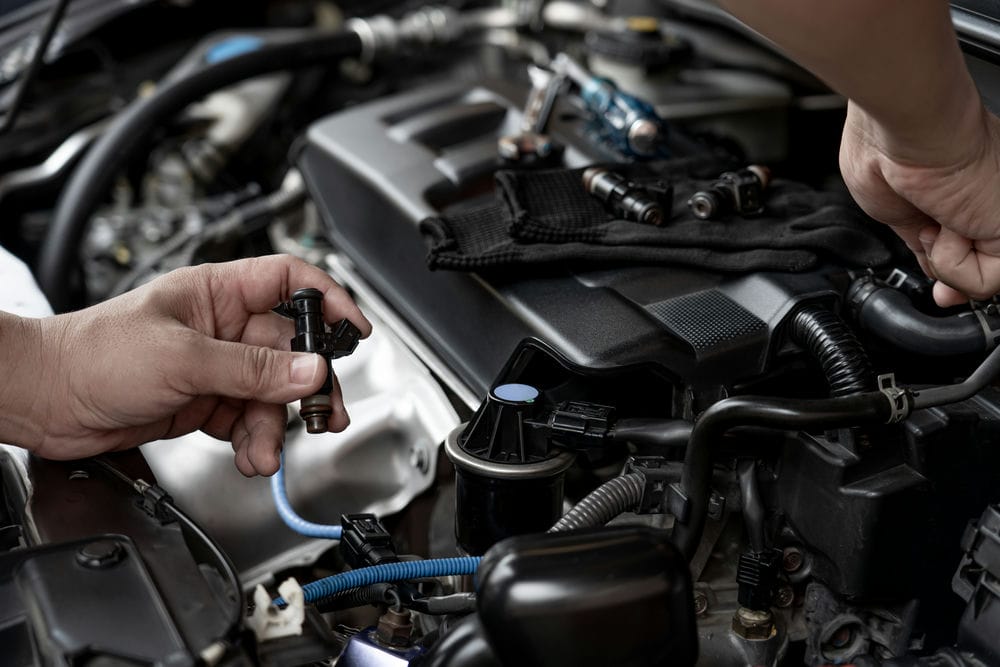
Engine oil pressure testing
Your car’s engine can’t work without oil, but it’s just as vital that the oil pressure is right, too. Consistent engine oil pressure could mean the difference between casually stopping by for regular maintenance and towing your car in for the auto repair’s equivalent of heart surgery.
The moment you suspect that something is wrong with your oil pressure – if the warning light comes on or the sensor flatlines – you should drop by for a quick checkup. Our mechanics will test your oil pressure using a tool and inspect the engine to ensure everything’s fine.
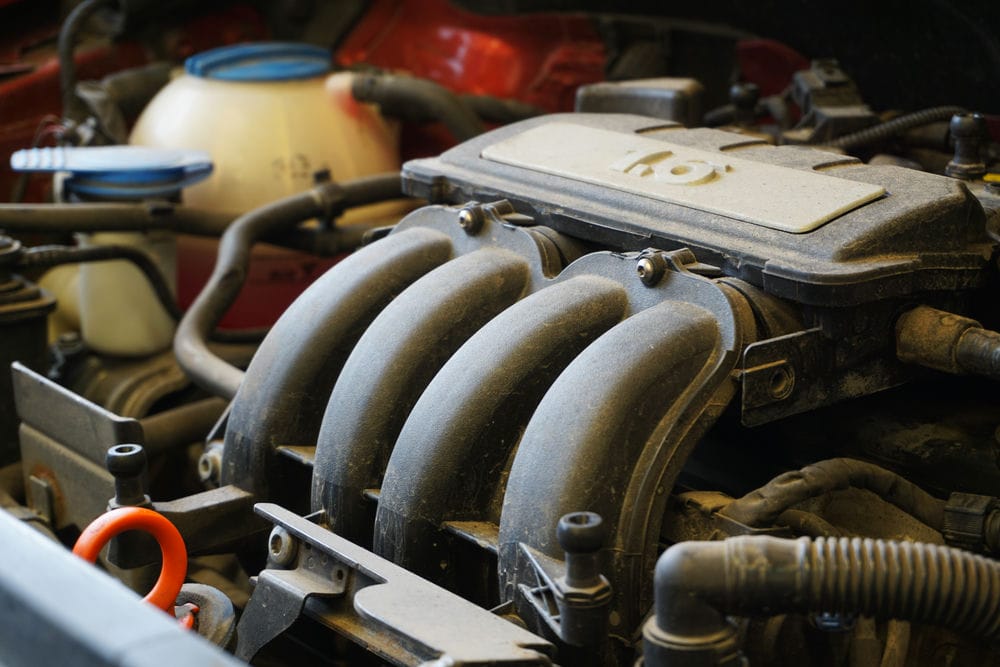
Intake manifold
The intake manifold is the part of your car’s engine that distributes the airflow between the cylinders. It’s one of the more versatile components in the engine bay and often includes several separate sections. Though made to last, the intake manifold can crack, rust, or worse.
Frequent problems related to intake manifold failure include carbon build-up, reduced airflow and oil, coolant, and vacuum leaks, as well as secondary problems with the intake turning valves. Our team will thoroughly clean and inspect the area repairing or replacing this part.
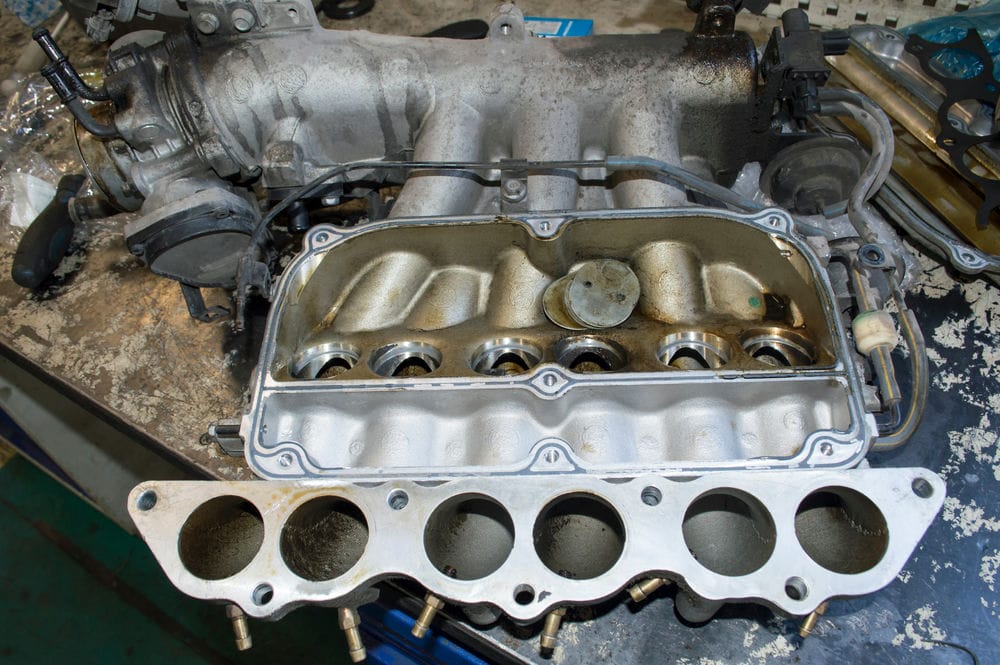
Intake manifold gasket
In the car’s engine, every small part is a composite of smaller, seemingly insignificant components that cannot function separately from each other. The intake manifold and its gasket provide a good example of this synchronicity. If one of them fails, the other will likely suffer, too.
While the intake manifold distributes the airflow between the cylinders, the gasket prevents oil, coolant, and vacuum leaks – and is the most common cause of engine coolant leaks. It’s very similar to a cylinder head gasket, so it takes a trained eye to determine which has failed.
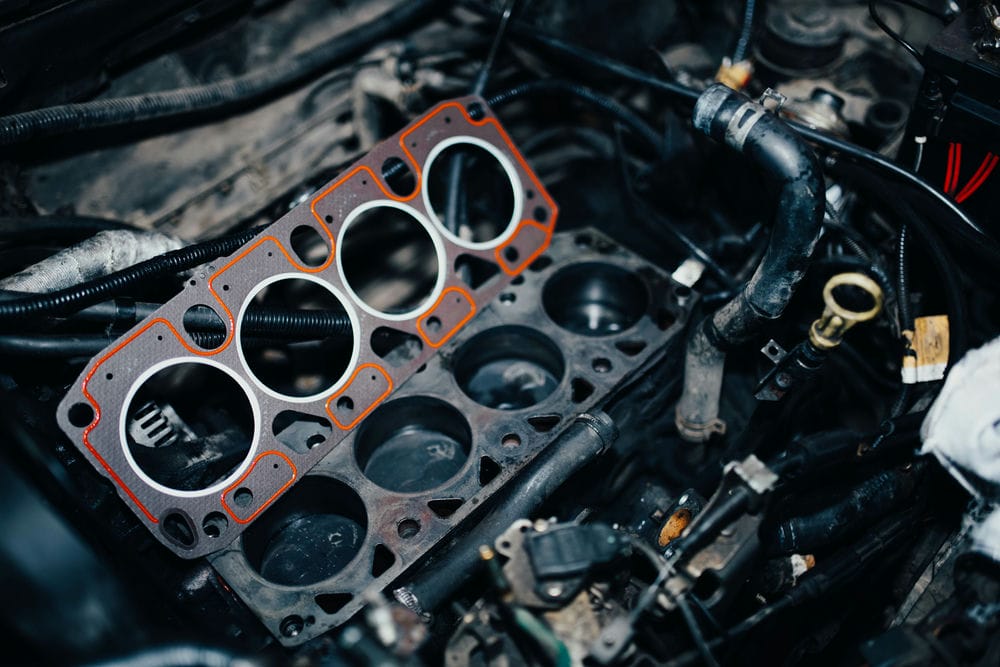
Plenum gasket
The plenum is another part of the vehicle’s intake manifold that deserves more attention than it’s given. This little-known part of the engine is crucial in terms of performance, economy, and overall health of the vehicle’s motor. Unfortunately, it’s also indispensable.
The plenum gasket, which helps equalize the airflow, is prone to damage and can deteriorate over time. The gasket itself is not very difficult to replace, but it still requires prior diagnostics, experienced hands, and proper tools for accessing and assembling the intake manifold.
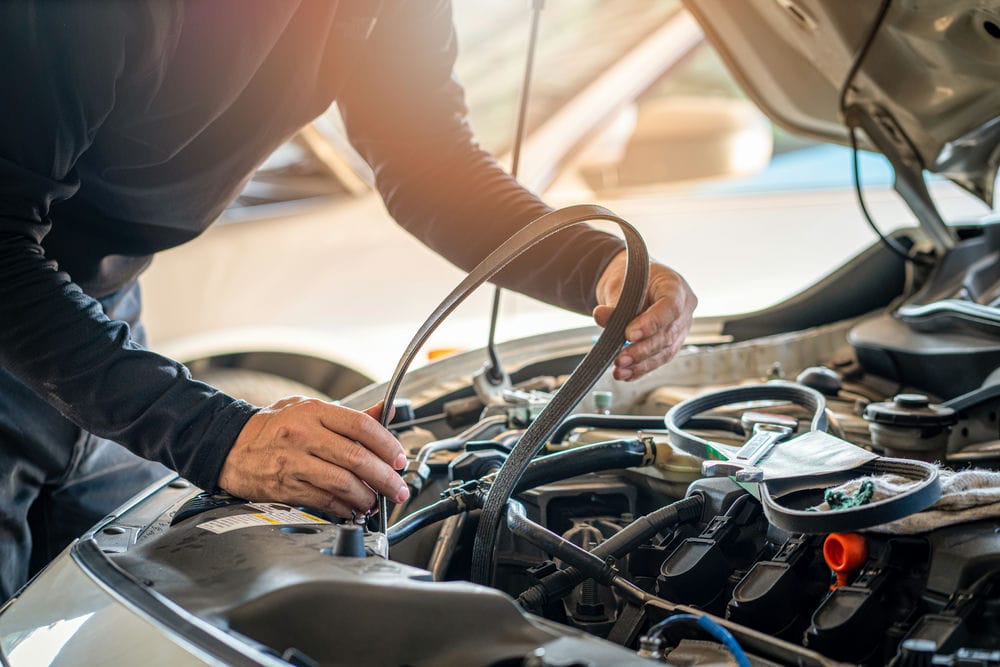
Timing belt
Most car owners pay little notice to the health and efficient functioning of the timing belt. In engine mechanics, the timing belt plays a key role in enabling the synced rotation of the cam and crankshaft. It’s an essential component of the motor that requires care and attention.
Even though modern-day timing belts are manufactured from high-quality rubber, the reality of everyday usage, harsh driving conditions, and high mileage is that you’ll have to replace this part from time to time. If it breaks while you’re driving, it can cause significant damage.
Reach out to us today to schedule an appointment
Ventura
(805) 659-2957
Call Us -
Text Us
Mon-Fri: 7:30 am - 5:00 pm
Simi Valley
(805) 581-9013
Call Us -
Text Us
Mon-Fri: 7:30 am - 5:00 pm
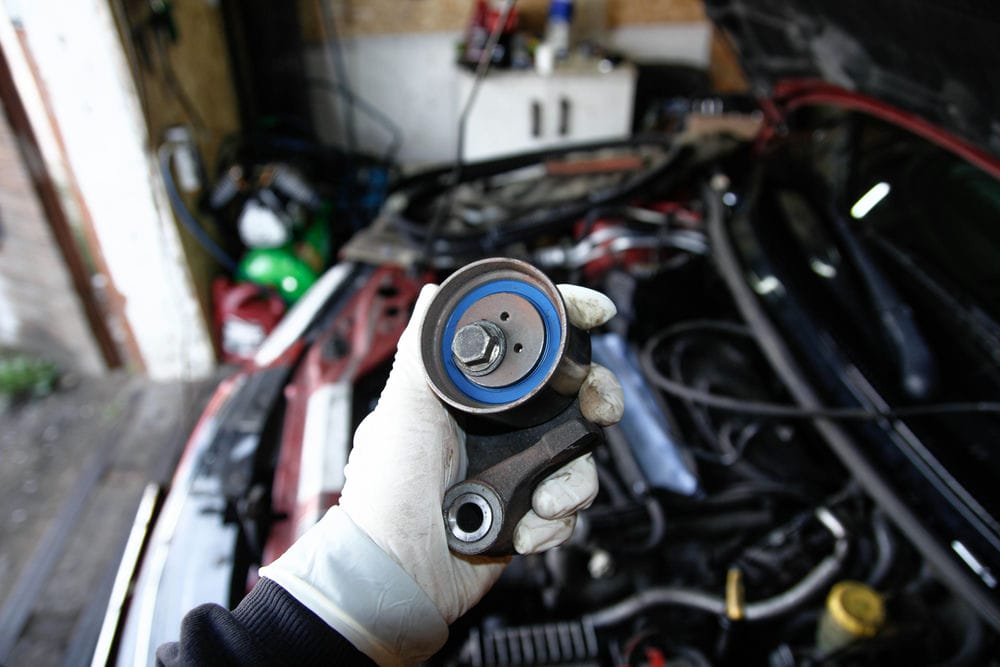
Timing belt tensioner
The timing belt tensioner enables the timing belt to run smoothly by applying pressure to it. It’s usually what’s wrong with the timing belt in the first place – in many scenarios, only the tensioner will need to be replaced, while the timing belt remains undamaged and intact.
Most manufacturers recommend replacing the timing belt tensioner every 50 to 70,000 miles. It’s the best preventative measure against timing belt failure, which can be both dangerous and costly. Upon inspection, our mechanics will recommend repair or replacement.
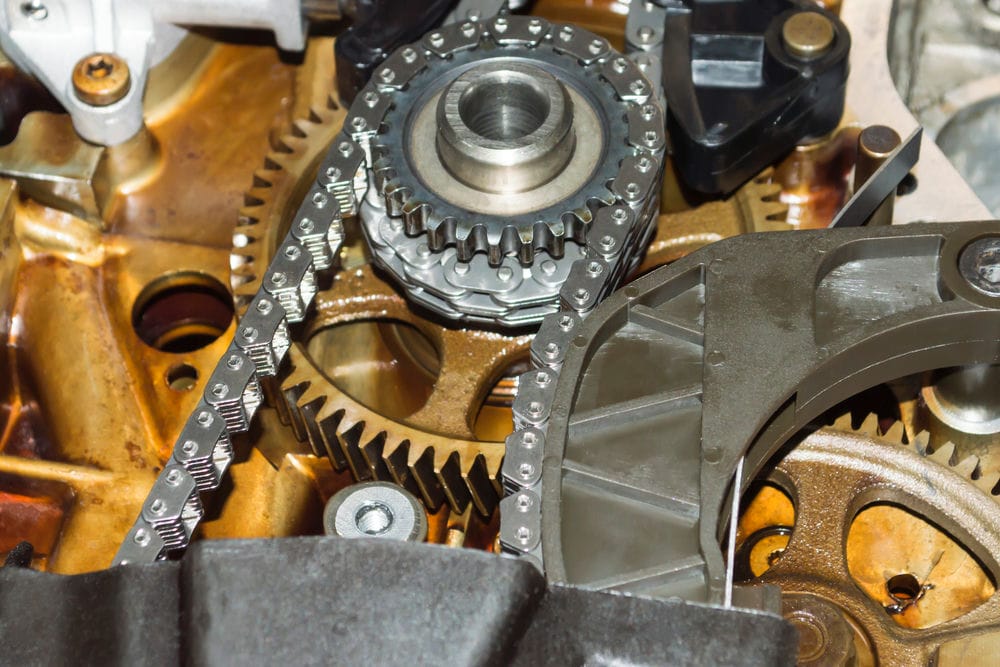
Timing chain guide
While timing chains are designed to wear out and be replaced after a certain mileage, the timing chain guides usually outlive the engine itself. Because they are made to last, the timing chain guides are a reliable telltale sign of the motor’s state and the vehicle’s overall health.
When we diagnose a faulty timing chain guide, that’s a cause for concern. A problem like this can typically be traced to the timing chain tensioner, at best, or the oil pressure and the lubricants. The vehicle usually needs to stay in for deeper engine diagnostics and work.
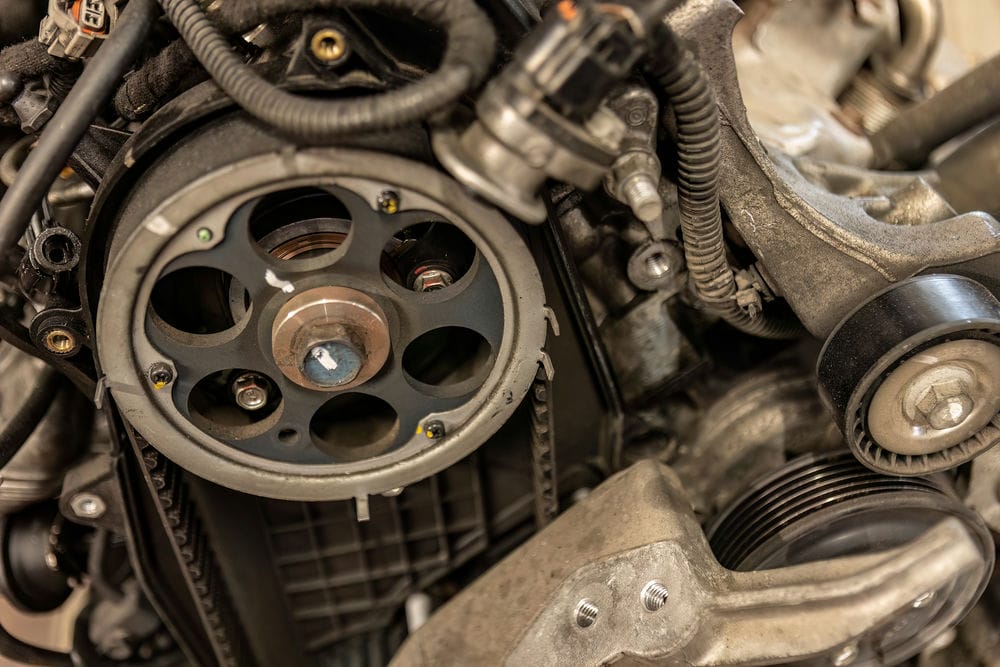
Timing chain tensioner
Another important link in your car’s timing chain, so to speak, is the so-called tensioner that prevents the chain from rattling. In addition to preventing the chain from coming off the sprockets, it also ensures that the chain, the alternators, and the water pumps are running smoothly.
A rattling sound from the motor is a strong indicator of a failing timing chain tensioner, but this is only one of the symptoms. A worn tensioner can be tricky to identify without this warning sign, so it’s important to know your vehicle and maintain it in good health.
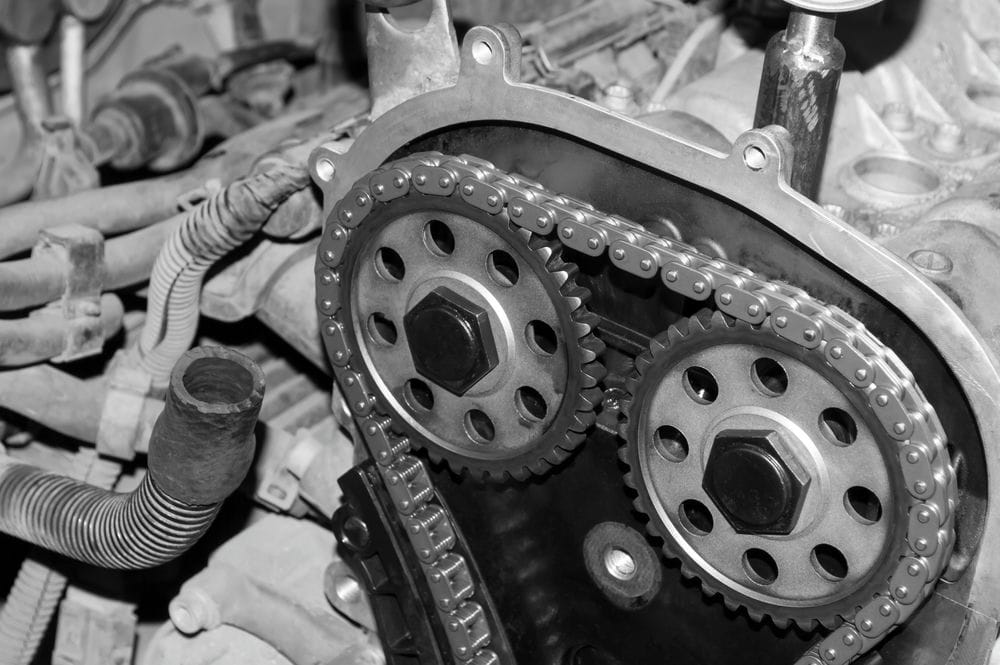
Timing chain cover gasket
Among the many different symptoms of a faulty engine, an oil leak is the most difficult to diagnose. Sometimes, an oil puddle underneath your car indicates a serious problem. On other occasions, a leak could signal a less severe issue, such as a timing chain cover gasket failure.
The problem with this is that only a professional diagnostician can tell which is which, and a good one at that. If you’re dealing with a timing chain cover gasket failure, chances are that the problem will become much more severe by the time you identify the issue and bring the car in.
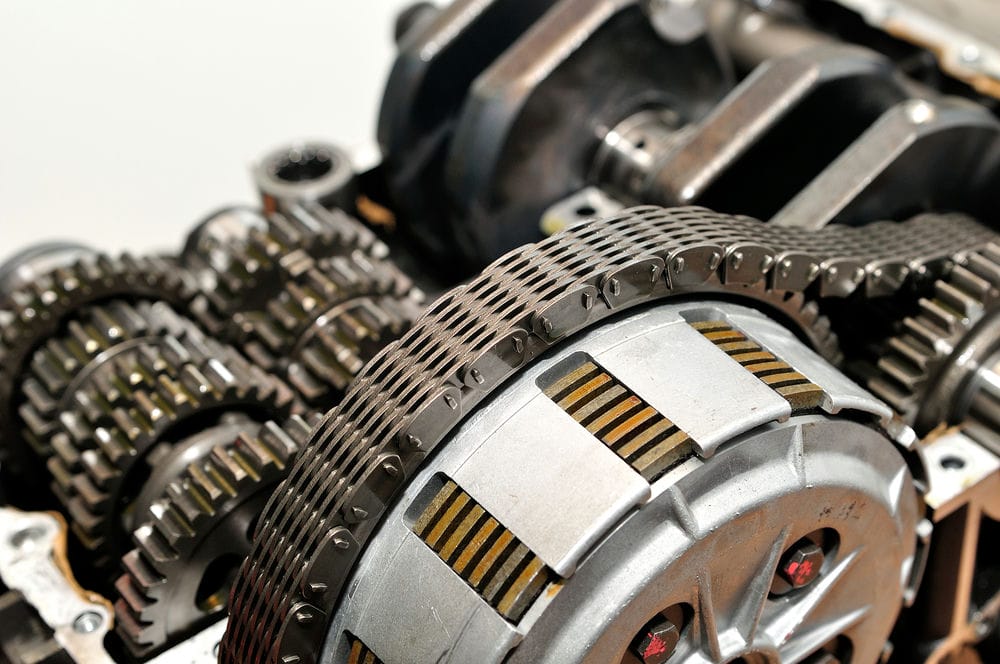
Timing chain and gears
Your car’s timing chain consists of several small but essential links. The gears are a key part of that assembly as well. They ensure that the car runs smoothly by controlling the amount of fuel and air that enters the cylinders. Over time, the gears will become worn and noisy.
When our mechanics detect a faulty timing gear, they usually recommend replacing this part. While this is a relatively simple job, it’s an opportunity to take a closer look at your engine bay and inspect other vital parts. A faulty gear can tell us a lot about the state of your vehicle.
Dependable Car Care!
Complete Neighborhood Auto Service
Ventura
(805) 659-2957
Call Us -
Text Us
Mon-Fri: 7:30 am - 5:00 pm
Simi Valley
(805) 581-9013
Call Us -
Text Us
Mon-Fri: 7:30 am - 5:00 pm
Proud Member of

ASE Certified Auto Repair Shop
Here at Dependable Car Care, we expect you should believe that when you bring us your vehicle, our auto technicians will resolve the mechanical issue(s) presented, and restore the dependability and reliability you expect from your car’s performance. So Get your vehicle back on the road using our reliable Auto Repair Services.
Dependable Car Care is the right place to come with your vehicle for Quality Auto Service, Reliability, and Affordable Prices.
Ventura
(805) 659-2957
Call Us -
Text Us
Mon-Fri: 7:30 am - 5:00 pm
Simi Valley
(805) 581-9013
Call Us -
Text Us
Mon-Fri: 7:30 am - 5:00 pm






